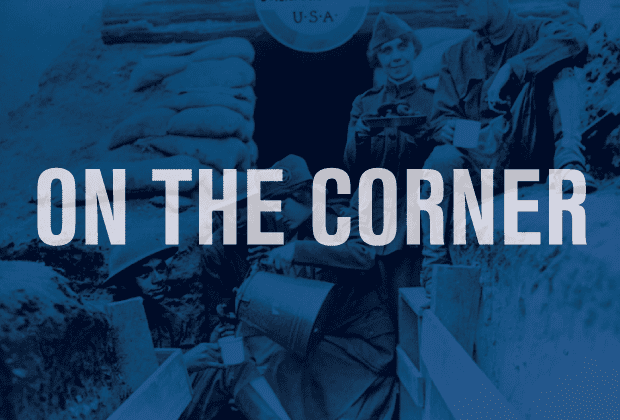So what do you do in the face of a crisis?
by Robert Docter, Editor-In-Chief –
Your friend, mentor and leader has been arrested and charged with a capital crime. You have been publicly associated with him, and now law enforcement moves through the community to arrest any of his followers. Suddenly, a crowd picks you out as an official approaches. Crisis!
We seem to move through life experiencing unexpected crises that deliver varying levels of tension and stress. Each promises a distinct turning point. Change is imminent. Things from this point forward are going to be different—either for better or for worse.
The choices we make in the very short moments between awareness and presentation of crisis often dictate the resolution of the crisis.
He told them on several occasions exactly what would happen – this tall, gaunt, bearded rabbi who had spoken in riddles that resonated deep within them and stirred their souls. Even last night at the Passover sader, right after he had washed everyone’s feet, he had made it clear—but, once again, we thought his words probably meant something else. Surely, they wouldn’t take him away and kill him.
But they did. The turning point had arrived. The chain of events had tightened to its limit and had snapped. In a matter of hours betrayal, arrest, a mob trial and crucifixion had ended it all.
But had it?
Ever wonder what you’d have done in that situation?
Well, let’s take a look at what that rag-tag bunch of randomly recruited human nobodies did. Maybe, we can learn something from them.
First, I’d have to say it was every man for himself.
Peter is a fascinating illustration. He was a great ear chopper in the heat of battle, and then rebuked by Jesus for his violent response during the arrest. Then, his series of denials occurred as he slipped alone out into the darkness of the night. There was no testimony at the trial from his close followers. None of them was around to pick up the cross on the road to Golgotha, and only a couple showed up at a distance during the crucifixion.
Each of them was experiencing their own crisis—trying to make sense of it—exploring what the consequences meant to them personally.
This is probably a good idea. Take a moment or two and get your act together. Talk to God privately in your own voice. Remember: You’re blessed when you’re at the end of your rope. With less of you, there is more of God.
Second, they got together within a matter of hours and shared their all their feelings as well as their grief. Things don’t get all hunky-dory immediately. I suspect there was considerable fear in that room and a giant sense of loss—both of which were probably blanketed by anger. Sometimes you have to deal with the anger to get through to the loss.
It is important to recognize that being with people you trust and sharing your feelings with them allows your mind to kick into gear. You are not alone. You’ve got help. God delivers on his promises. You can call upon him. It’s called prayer.
Third, they met again with Jesus. They touched him, and he touched them. They spoke with him, and he spoke with them. He was a calming influence. They had moved quickly from pride, to fear, to grief—and then to jubilation. He harnessed their joy with expanded faith and trust in him as Messiah.
When things go very, very wrong—Don’t let it throw you. You trust in God, don’t you? Trust me!
Fourth, they went to work—doing what God wanted them to do.
There are two totally different forms of tiredness. One, the flat, enervating, feeling sorry for yourself—self-centered moping—a draining tiredness that is different from the exhaustion at the end of a productive day of work that somehow is highly motivating.
The person who trusts me will not only do what I’m doing but even greater things, because I, on my way to the Father, am giving the same work to do that I’ve been doing.
Fifth, each welded the best parts of his former self into a new self-image built on an entirely new character. Their value systems had changed. Their view of their world was different because they had a concrete representation of God within them. Live in me. Make your home in me just as I do in you. Their motives were directed away from self-glory to an all abiding love for mankind. They had the strength to withstand the pressures of unjust government actions. They became advocates, healers, ministers to the “least” among them. They avoided a competitive spirit and worked in harmony with all who claimed Jesus as God’s son.
With God, they changed the world.
A crisis is an opportunity for growth. We all operate at about 11% of our potential. Be thankful when the world around you tries to pull the rug from beneath you. Surprise all by ending up on your feet—standing tall.
…and remember that follower facing his personal crisis? He got his act together and now has a big church named after him in Rome.











